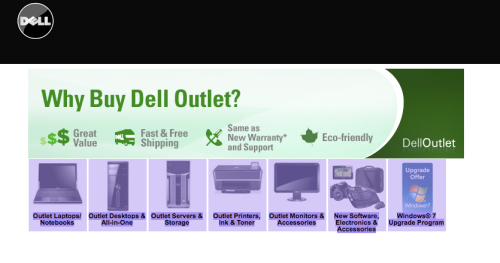
A few weeks back I wrote a blog post questioning the significance of $3 million in Dell Outlet sales attributed to Twitter (Twitter has made money for Dell Outlet — is it just a big yawn?). After all, $3 million is just a drop in the bucket of Dell’s total turnover.
On a recent episode of the podcast For Immediate Release, Neville Hobson interviewed Richard Binhammer, who manages Dell’s social media efforts. Richard mentioned two things that place Dell Outlet’s use of Twitter in context and strengthen the case for Twitter as a marketing tool in this specific instance.
First, Dell Outlet is a small division and doesn’t have much of a marketing budget. The cost of marketing via Twitter costs virtually nothing. (Pun intended!)
Second, Dell Outlet has a business model that makes Twitter the perfect communications tool. It sells discounted computer products and systems that have been used and refurbished, or were left over from canceled orders, or are the equivalents of “seconds,” that is, hardware that has some kind of cosmetic fault that doesn’t affect its performance.
Apparently the business model doesn’t allow for holding on to inventory. When stuff gets returned, even if it’s as few as 5 laptops, Dell Outlet has to move product fast. They can’t afford to have excess inventory clogging up the system. “I can’t think of any other venue in which we can do that,” Richard says. Even relatively short newspaper lead times take too much time. (Oh yes, and newspaper advertising costs money.)
This case raises an important point. Everyone keeps asking the question, can Twitter and other social media communities be used effectively for business. The answer is, “It depends.” It depends on the business model. It depends on the product. It depends on the community, why that community has come together, what each individual hopes to get from being there.
Dell Outlet on Twitter is just one of many ways Dell uses, and continues to pioneer, social media for business. For other Dell activities on Twitter and links to other Dell social media endeavors, go to this page.


